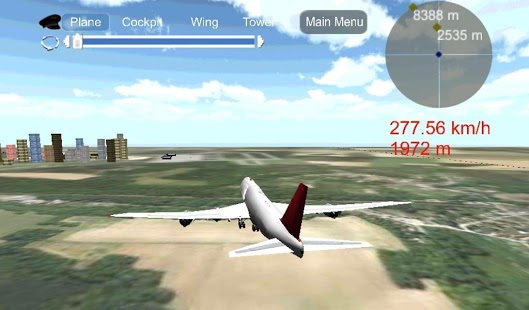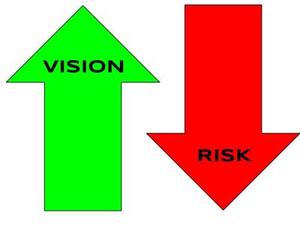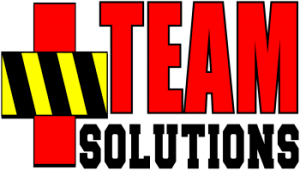“Your focus is your reality.”
~Yoda
Let’s revisit that silly Facebook puzzle where you’re tasked to quickly “look at: 1 2 3 4 5 6 7 8 9 10 11 12 13 14 15 16 17 18 19 20 and find the mitsake“.
See what I did there? I primed you to look for an error in the numbered sequence which also drew you away from the part of the sentence containing a misspelling of the word “mistake“. If we miss it initially it doesn’t make us a lesser person, we’re just humans relying on what our brains are trained to do, both consciously and subconsciously. Besides, it’s just a game right?
The stakes of missing something aren’t always so insignificant however.
BREAKING: Little Timmy is missing! He was last seen wearing a bright red jacket, white sneakers and a Mickey Mouse ball cap.

As search and rescue (SAR) responders, when we’re primed to look for Little Timmy by his unique clothing description in a world full of visual stimuli, we can and do easily suffer from perceptual blindness. Not only will our situational awareness for hazards and other clues decrease, but our ability to actually detect Little Timmy if he’s under a pile of leaves with his shoes covered in mud, without his jacket and without his hat being visible decreases too. The more we expect to find Little Timmy wearing a Mickey Mouse hat, the easier he will be to miss if he doesn’t have it on.
Unfortunately, from a search and rescue perspective, this unintended oversight may cost Little Timmy his life.
Watch the short video below to see part of why this happens. Its based on Professor Daniel Simon‘s seminal work on “inattention blindness” while he was at Harvard University.
While capability building as part of the larger topic of search strategy and tactics, I’ve shown the above video to hundreds of trained search and rescue students including those from law enforcement and the fire service. Even though most could consider them trained observers, the majority of them miss the clue, which again underscores the fact that the omission is more of a human behavior issue than an individual issue. For those of you that have been in any of my classes or worked with me on a search project you know that this is a significant and passionate area of interest to me. We’re just scratching the surface here.
Many years ago this concept started needling its way into my thick skull after the search and recovery of a suicide victim. Except for his severe mental illness, his life and my life had a lot of similarities. We were the same age, lived in the same neighborhood, drank at the same bars, etc. As was customary, I was given a recent picture of him which of course primed me to recognize him. Except that when I found him he didn’t look anything like his picture. And for 3 straight nights his face from the photo appeared in my dreams and in the faces of people on the street in a not-so-relaxing way. After that, I decided that I would dispense with the pictures and radio in ANY suicide victim I found, not just the one in the picture. Grief is very disproportionate … out of 100’s of searches and disasters I’ve responded to, only three (3) so far have made their way into my head in a bad way … and they were not even the most horrific either. Again, very disproportionate.
Now, before we get to the solution, let’s also look at a corollary in the private sector that’s also influenced by perceptual blindness.
In a test of trained commercial airline pilots over 25% of them – during a computer simulation – landed on a runway distraction like a person or a vehicle because they didn’t notice them. Conversely, people who were NOT trained to land planes tended to notice the runway distractions due to their lack of being primed for what to do and what to look for.

You cannot depend on your eyes when your imagination is out of focus.
~Mark Twain
Now consider the implications of perceptual blindness in your organization by reviewing 7 sample blind spots:
- Your company drivers that are primed to look for cars and trucks then but then strike a pedestrian or bicycles because they don’t notice them …
- Your office staff that doesn’t notice the intruder with a fake employee badge because they are primed to only identify a badge, not an official badge …
- Your teenager is primed to monitor their phone for incoming texts and other stimuli so they miss the stop sign when driving and have an accident …
- Your clerk that misses the critical document or critical piece of data because it was not in the place he/she was primed to look …
- Your youth coach that misses the inappropriate touching of a child by another coach because they are only primed to look for skill development …
- Your potential customer that doesn’t see the sign about the special offer (online OR in a store) because they have been primed to look for something else …
- Your Operations Manager who didn’t notice the missing bolt that led to the equipment failure and related injury because he/she was too primed to only look for other signs of production …
By putting some careful thought into identifying the blind spots in our daily environment, we will likely see an increase in our risk and the consequences that come with it. And if we can identify risk and consequences, we can also construct a strategy to address them. [Tweet that]
“Hanging focuses the mind very clearly.”
~VP Gerald Ford, addressing staff cutbacks

Here are 5 things you can do immediately to improve vision and decrease risk:
- Review the effectiveness of your briefings, instructions or admonishment to verify that you are communicating your specific needs optimally.
- Book an hour with me to discuss how improving the search brain helps in other, meaningful and measurable parts of your organization.
- A customized “Search and Rescue” workshop – modified and simulated to maximize the lessons discussed above, but catered to your organization?
- A presentation or seminar about the lessons discussed above to start building a foundation of knowledge within your workgroup?
- A scalable audit of your organization’s blind spots followed by a written improvement plan?
- A regular online coaching / consulting session to build your capability in the above or similar topics?
- Share this post with your stakeholders and your network to help them reduce the chances that their perceptual blindness will negatively impact you!
- If you are a police, fire or SAR responder, contact me to learn about training options to expand your proficiency in finding what you are looking for (reducing misses!).
- Challenge friends and co-workers to a word search game (for money) now that you understand a little more about how people look for things. 🙂
If you found this article beneficial, please consider sharing it with your friends and colleagues.
